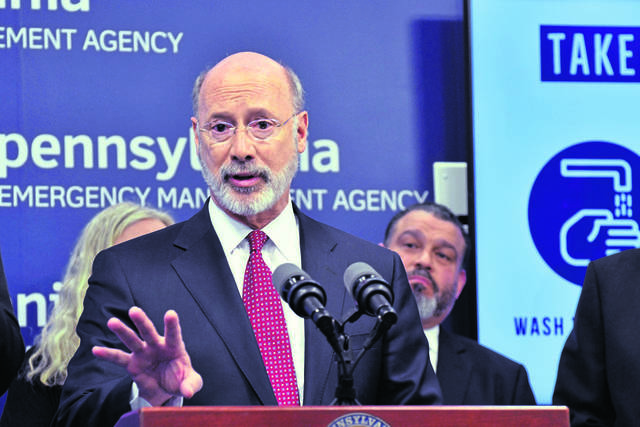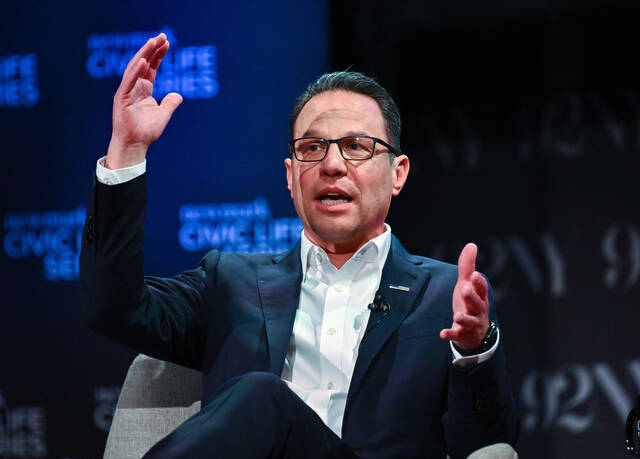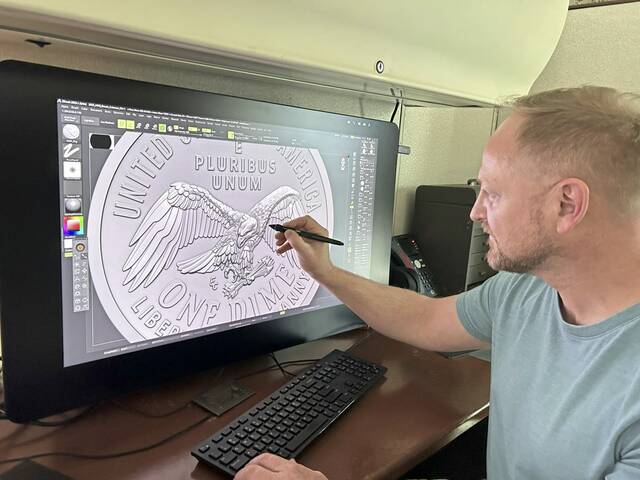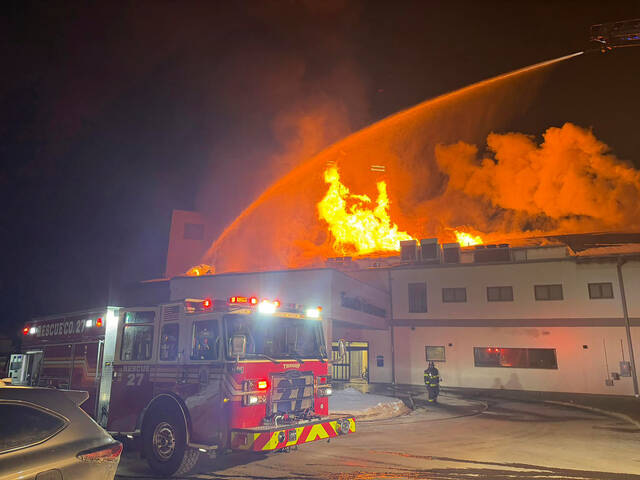Gov. Tom Wolf is urging state lawmakers to distribute additional funds to businesses that have suffered during the covid-19 pandemic.
“As you all know, many Pennsylvanians — all of us — have been suffering greatly because of the covid-19 pandemic and that includes businesses, through no fault of their own,” Wolf said last week. “They really deserve our help.”
The general fund has $145 million available, excess from the Workers’ Compensation Security Fund. Wolf and other Democratic leaders said they’d like to see that money get into business owners’ hands as quickly as possible.
Wolf said he’s had conversations with Republican lawmakers on the matter, but didn’t know of any “philosophical difference” that would stop Republican lawmakers from allocating the funds, which has been available for about a month. He said he wants bipartisan talks to determine distribution methods and decide which businesses are most in need.
But Pennsylvania House Republican Caucus spokesperson Jason Gottesman said Wolf has not spoken to Republican leaders and claimed the money was not available for use.
“To our knowledge, he has not transferred any money in furtherance of his plan and has not engaged with House Republican leadership on this initiative on any level,” Gottesman said. “Our doors are open, our phone lines are working, and we await engagement from the governor on what ideas he can bring to the table.”
When Wolf first announced his plan to create a small business grant program from the funds, House Republicans said they “would work with him on relief that accompanies long-term solutions that ends the threat of these ridiculous shutdowns,” Gottesman said.
He also noted that he does not believe the governor has the authority to transfer the money and make it available for this use. Democrats in the legislature have not introduced a proposal for this initiative, he said.
Pennsylvania Chamber of Business and Industry President Gene Barr said he appreciated “any good-faith proposal to help struggling employers,” but expressed concerns with drawing money from the Workers’ Compensation Security Fund, as Wolf proposed.
“It’s important to recognize that the essential purpose of the Workers’ Compensation Security Fund — which is financed by the business community — is to support injured workers and note it has already been drawn upon to help balance the current state budget,” Barr said in a statement responding to Wolf’s proposition.
How many businesses could receive aid from this $145 million fund depends on the amount offered to each business, Wolf said. “You can make $145 million go a long way,” he said.
Senate Democratic Leader Jay Costa of Forest Hills said the money is “desperately needed.” He stressed that more businesses will close if they don’t receive the much-needed aid.
House Democratic Leader Joanna McClinton of Philadelphia cited businesses like restaurants, bars, barbershops and salons as among those that may be most in need of aid.
“It is imperative that we take this up when we return Jan. 25,” she said. “If we’re able to help our local businesses early in this new year, we can help people right now who are without jobs get back to work faster. We can offset some of the economic damage that’s been done to our local businesses in every corner of the commonwealth, especially our restaurants and our small bars.”
Wolf also expressed optimism that additional federal aid would be forthcoming. In the meantime, he said, Pennsylvania should make use of the money it has available now.
Barr urged lawmakers to consider other ways to support businesses, aside from financial aid.
“Policies that don’t come with a monetary cost — such as much-needed targeted liability protections — would go a long way toward Pennsylvania’s economic recovery,” Barr said. “Unfortunately, these much-needed protections were opposed by legislative Democrats and vetoed by Gov. Wolf. We also caution lawmakers from pursuing proposals — such as government-mandated wage increases — that will increase the costs of doing business.”
.








